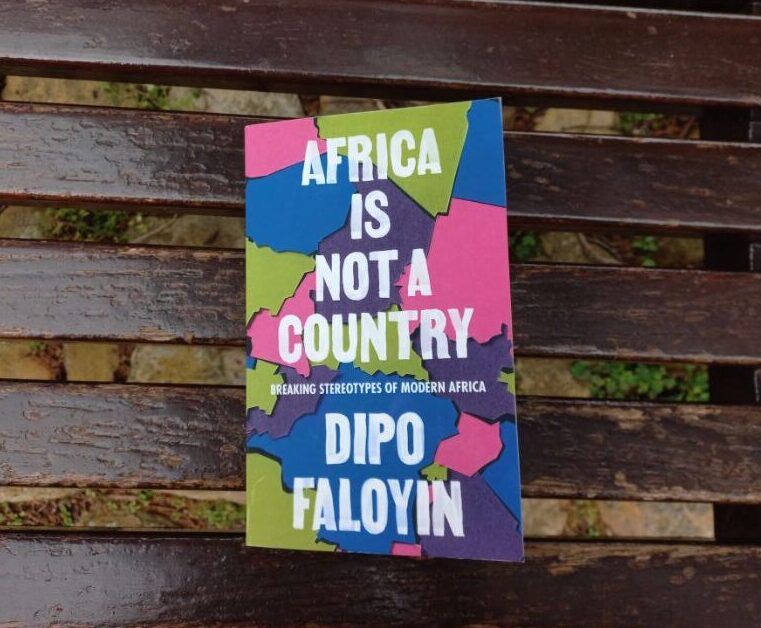‘Africa is Not a Country’ Hits Back at Outdated Stereotypes
With ‘Africa is Not a Country’, Journalist Dipo Faloyin counters inaccurate narratives about the continent with history and specificity.

In a well-researched counter-argument to lazy stereotypes of the African continent, Dipo Faloyin invites readers to learn more about Africa and demand better, more accurate and diverse representations.
Faloyin’s writing balances well between conciseness and detail. He uses examples to explain concepts, with some well-selected quotes from primary sources to allow the reader to get a sense of attitudes among those involved in Africa’s history. There’s some irony and personal anecdotes, too, to keep it interesting.
An Overview of ‘Africa is Not a Country’
The premise of Africa is Not a Country is exactly what the title suggests. In an interview with CNN, Faloyin explained: “If you ask most people to close their eyes and think of Africa, two types of images will appear. They’ll think of poverty and devastation, or they will think of safaris, with very little, if nothing, in between.” In Africa is Not a Country, Faloyin details these stereotypes, their inaccuracies, how they were formed, how they continue to play out and how they have directly led to harm on the continent.
There are eight chapters in the book. Two of the chapters deal with instances of specificity (countering the stereotype of Africa’s being a single thing): one about Lagos and another about the different types of jollof rice and the rivalry of the Africa Cup of Nations.
An additional chapter deals with the colonial division of Africa; another with how charity campaigns have used offensive representations; and another with Hollywood portrayals of Africans that have and haven’t been harmful. Faloyin also addresses the thorny topic of dictatorship and democracy on the continent, through seven pertinent examples.
Faloyin also devotes an entire chapter to the debate around returning African artefacts stolen in the colonial period. The final chapter looks at what the future might hold for Africa, based on recent events.
Some Topics Addressed by ‘Africa is Not a Country’
To get an idea of what sorts of content you can expect, here are some issues and statistics that stand out in the book:
- The Sultan of Zanzibar asked to attend the 1884 Berlin conference that laid the foundation for the so-called Scramble for Africa. He was refused; not a single African had a say in how the continent was divvied up.
- Despite Nelson Mandela and Robert Mugabe taking different approaches to governance, division remains in both countries. “Neither direction could cleanly untangle their nations’ fabrics. Though the economic and social development of the two counties is incomparable, South Africa remains painfully segregated.”
- Even with every artefact returned and promised to be returned, over 80% of Africa’s material cultural heritage would still remain outside the continent.
- It’s often claimed that different morals applied to the colonial period. Yet, “British prime minister [at the time], William Gladstone, expressed shame and ‘deep regret’ that Maqdala treasures from Ethiopia were looted.”
Why You Should Read ‘Africa is Not a Country’
Africa is Not a Country follows a great tradition of critiquing stereotypes of Africa, a tradition popularised by Binyavanga Wainaina’s How To Write About Africa and Chimamanda Ngozi Adichie’s TED Talk, The Danger of a Single Story. If you liked either of these, you’re sure to like Africa is Not a Country.
Author Faloyin is well-aware of these great works, and references them. However, Africa is Not a Country addresses more recent events, as well. For instance, he speaks about the End SARS movement which began in 2017 in Nigeria and the Capitol Riot in America in 2021.
Extraordinary; politics can be intimate & witty. My nearly four year old said she wanted to go to Africa to see the animals the other day, already absorbing the ignorance we have about this continent. My reply mid-this-book, ‘Which country, darling?’ @DipoFaloyin thank you pic.twitter.com/Qx7dWiVIiB
— maya wasowicz (@mayawasowicz) June 9, 2022
It’s clear throughout the book that Faloyin is primarily addressing a Western audience who are ignorant of the depths and complexities of the continent and its people, and who have, (if not directly, then through government or charity action) been complicit in the harmful stereotyping of Africa.
The poignant thing, though, is that many of the historic events that Faloyin examines are not mainstream knowledge in South Africa, at least. Faloyin brings so much detail and specificity to the history of specific peoples in specific regions that we do not learn in school or often discuss.
Africa is Not a Country, then, is also for those of us who do not know enough about our own continent. It’s certainly not a comprehensive history but it gives specific instances of historic themes of colonialism and racism, with examples stretching from Rwanda to Namibia to Benin.
About Author Dipo Faloyin
Dipo Faloyin is a journalist at VICE where he is also senior editor. He’s also written for i-D and the Huffington Post, amongst others. Africa is not a Country is his first book. Faloyin was born in Chicago and raised in Lagos. He currently lives in London.
Africa is Not a Country is published by Harvill Secker, an imprint of Vintage. It retails for R358 at Exclusive Books


